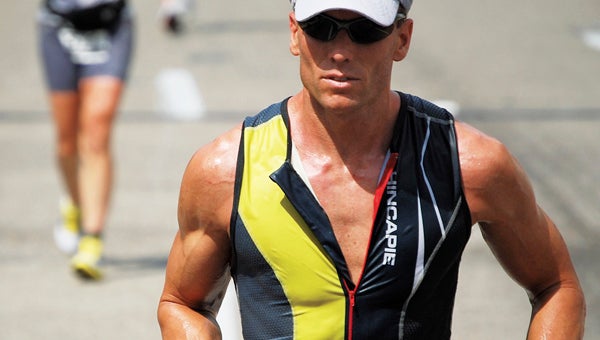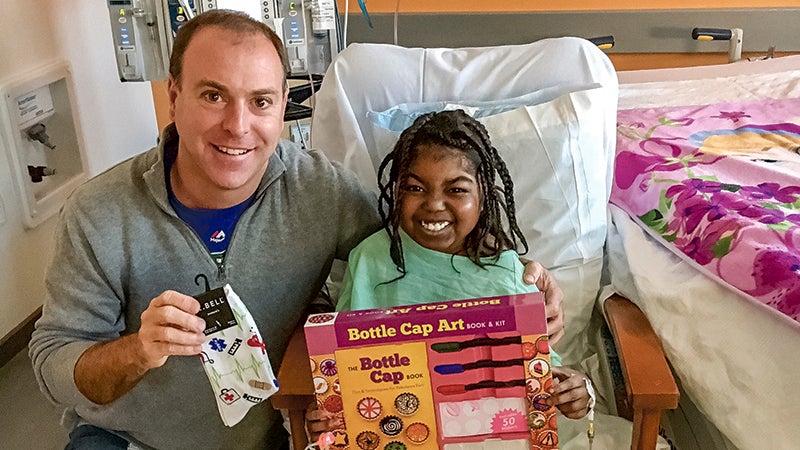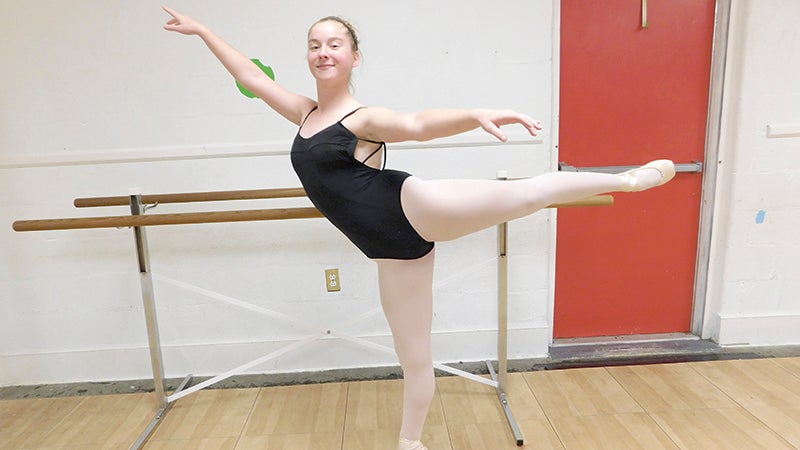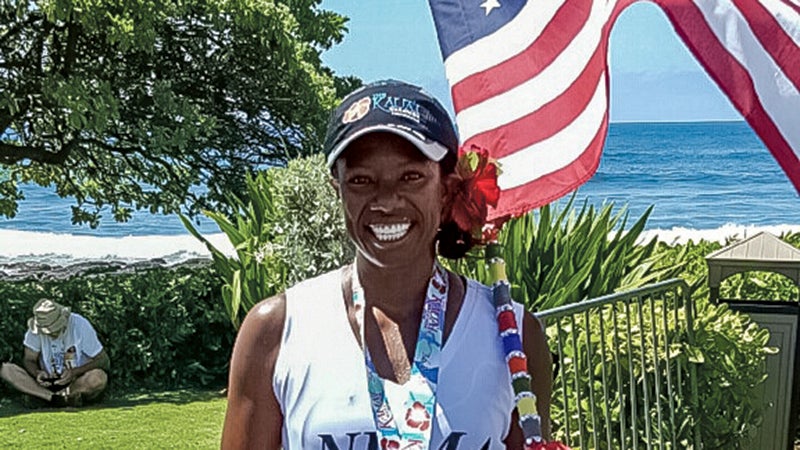‘Stay disciplined’
Published 8:48 pm Saturday, September 29, 2012

Suffolk’s Paul Hutta, 40, followed up the biking portion by finishing the final leg of Ironman Louisville, a 26.2 mile run, in four hours, 44 minutes, and two seconds. Hutta finished 792nd out of the 2,500-plus people to sign up for the competition.
Suffolk cop finishes Ironman
Suffolk police officer Paul Hutta showed his mettle in August by successfully completing the Ironman competition in Louisville, Ky.
To fully appreciate the achievement, it is important to know all of what the Ironman entails.
“The Ironman is a total of 140.6 miles,” Hutta explained. “You have to do a swim — it’s a 2.4-mile swim — a 112-mile bike ride, and then a full marathon, which is a 26.2 (mile) run, and that equals 140.6.”
Hutta, 40, finished the entire event in 13 hours, three minutes, and 58 seconds. Out of more than 2,500 who signed up to participate in Ironman Louisville, he ranked 792nd. Among the 347 people to finish in the male 40-44 age group, Hutta placed 143rd.
Undaunted by the enormity of the task, Hutta was very positive about the endeavor.
“I felt great,” he said. “I executed my training and nutrition plan. I was mentally prepared for it, so I do feel great about it.”
Hutta is a 10-year veteran of the Suffolk Police Department, where he currently serves as a gang investigator. While the demands of the Ironman were unmatched by anything he had done before, smaller-scale endurance races were nothing new to Hutta.
“I’ve been doing triathlons for about five years now,” he said, “and I started out doing smaller events, just shorter distances.”
The idea to try the Ironman came from friends and family.
“Last year, some friends that have done the Ironman distance and family and friends have just motivated me to train for it,” he said.
The training process took place during the course of five months.
“I would swim, bike and run, so I would have to put those three events in and not do three every day,” he said. “I know I did six or seven days a week of training. Minimum of training was I would put 10 hours a week in and up to 25 hours a week.”
“You have to vary your intensity of the training in each of the disciplines — in each of the swim, bike, run,” he said. “The training volume and the workout duration is how you build endurance.”
Starting two weeks before the race, Hutta tapered off his training time and increased his calorie intake, which alludes to an interesting fact about Ironman preparations.
“Nutrition is like the most important aspect of an Ironman, really, because if your nutrition isn’t right, your body will shut down,” Hutta said. “So, there’s a science to it, when you look at getting carbs in and you’re storing your glycogen.”
Hutta said 800 of those who signed up for Ironman Louisville did not finish, a fact he attributed largely to improper training and nutrition.
The hardest part of the race for Hutta was the 2.4-mile swim, which took him a little more than an hour and a half.
“I’m not the strongest swimmer,” he said. “So, I really had to focus on just pacing myself.”
Hutta, sponsored by Suffolk’s Bike West, described biking as his strong event, finishing it in just over six and a half hours. In terms of running, he said this was his first time ever covering more than 17 or 18 miles.
“But it didn’t affect me,” he said. “I’m not being cocky about it, but my body felt great on the run. After mile 17 or 18, it’s just a gut check then.”
He finished the marathon in just over four hours and 44 minutes.
His transition times, which allow for valuable stretching and physical recovery, were less than seven minutes from swim to bike and just over nine from bike to run.
Hutta felt the experience taught a useful lesson about sticking to his plan and “just trying to stay disciplined and motivated to keep going.”
Now, he is ready for more.
“Oh, for sure,” he said. “I’m actually motivated (to do) another one next year. I want to keep up with the full Ironman distance. I enjoy putting the five, six months of training into it and (will) just focus on maybe one big race a year.”





